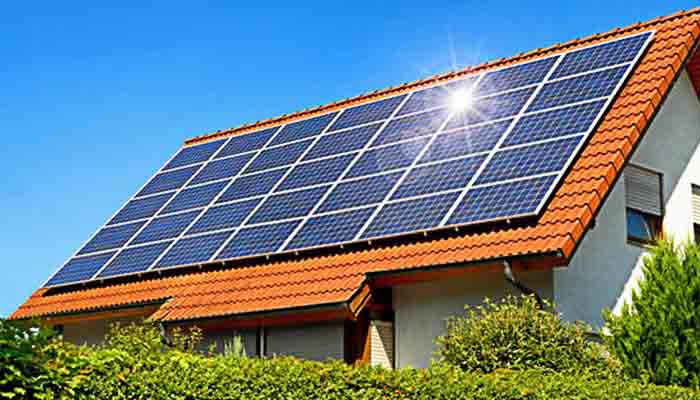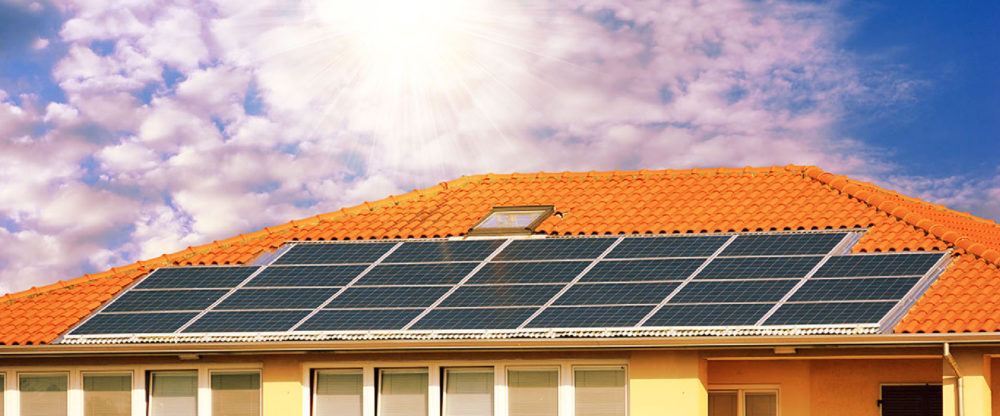Is Solar Energy Right For My Home?

Solar energy is growing in popularity across the United States, and it’s easy to see why. The cost of this renewable power source has decreased significantly, the effectiveness and accessibility has grown, and Congress extended a 30 percent federal tax credit for installing solar through the end of 2019.
But if you’re thinking of going solar, you likely have a lot of questions. Let’s take a look at the most common concerns and dispel some popular misconceptions.
What is solar energy?
First, if you’re new to the idea of solar power, here is an explanation from the Solar Energy Industries Association (SEIA):
“Solar power is energy from the sun that is converted into thermal or electrical energy. Solar energy is the cleanest and most abundant renewable energy source available, and the U.S. has some of the richest solar resources in the world. Solar technologies can harness this energy for a variety of uses, including generating electricity, providing light or a comfortable interior environment, and heating water for domestic, commercial, or industrial use.”
According to the SEIA, “through 2018, there are more than 64 gigawatts of solar installed in the U.S., enough to power more than 12.3 million homes.”
Is my home suitable for solar?
There is a common misconception that a homeowner can only reap the rewards of solar energy if they’re soaking up the sun in California or Florida. But, Dan Bacon, president of Absolute Environmental Solutions, LLC, says theoretically, every house is a candidate for solar energy.
“There are factors that can make a home more ideal than others, but you can still benefit even if your home doesn’t meet those specific characteristics,” he said. “It may just mean a slightly longer payback period, but with today’s technology, pretty much any home can generate sufficient energy.”
If you run a quick search online you’ll see the characteristics of an “ideal” home include a roof that is south-facing, relatively new, and has an angle of 30 degrees with no obstructions, and no buildings or trees casting shadows. Again, while this may be considered the perfect solar set-up, Bacon and his business partner, Rob Kaercher, CEO of Absolute Environmental Solutions, have successfully installed solar technology on a variety of homes.
“We offer a free site visit where we review the homeowner’s most recent utility bill, perform an analysis of the shading at the property, and examine the roof and take measurements,” said Kaercher. “All of this helps us put together an estimate of what your solar energy production could be.”
There is also a common concern about solar panels holding up in harsh weather. However, Bacon and Kaercher say today’s panels are extremely durable and are designed to stand up to a range of weather conditions, including hail and snow.
Will I need to replace my roof?
While you don’t need a brand new roof to install solar panels, you shouldn’t be planning on replacing it anytime soon. As a general rule, experts say if your roof needs to be replaced within the next 5 years, it’s best to have it done before installing your panels.
“Right now, in addition to the 30 percent federal solar tax credit, you can actually get an extra 10 percent credit on the cost of your roof replacement if you’re doing it in order to go solar,” said Bacon.
How much money will I save?
The first thing to consider is how long you plan to stay in your home. For solar to be a worthwhile investment, it’s best if you plan to stay long enough for the panels to pay for themselves. Why? Because you can’t predict how much potential buyers will value this investment and whether you’ll be able to recoup your costs.
Kaercher says at a site visit, his team puts together an estimate of how long it will take for a homeowner to recover those costs and begin to see the financial benefits.
“Keep in mind that standard electricity rates rise, on average, about 5 percent per year,” he said. “So, every month you are responsible for paying that utility bill and every year those rates will increase. When you go solar, you are essentially investing in your energy independence.”
There are also other financial incentives, like Net Metering, which is offered through Consumers Energy and the Lansing Board of Water & Light through 2020. Net metering enables customers to install a renewable energy system, connect to the electric utility grid and send electricity back to the grid at times when their generation exceeds their own use. Simply put, you’ll earn credit on your monthly energy bill for excess energy you don’t use.
As far as concern over the installation costs, the SEIA says the total cost of residential systems has declined by more than 65 percent over the last decade.
“It’s really a great time to go solar,” said Bacon. “Not only have the costs gone down dramatically, but we also currently have the federal tax credit and Net Metering programs available, so the benefits are really greater than they’ve ever been.”
If you’re wondering if solar energy is right for you, schedule a free site visit with Absolute Environmental Solutions. Bacon and Kaercher, both graduates of Michigan State University, are happy to go over the options and answer all your questions.
“There is a lot more information available today and local municipalities are really starting to put an emphasis on solar energy education,” said Kaercher. “I think the more people learn about this technology, the more they’ll realize how accessible it is and how quickly they can realize the benefits.”


